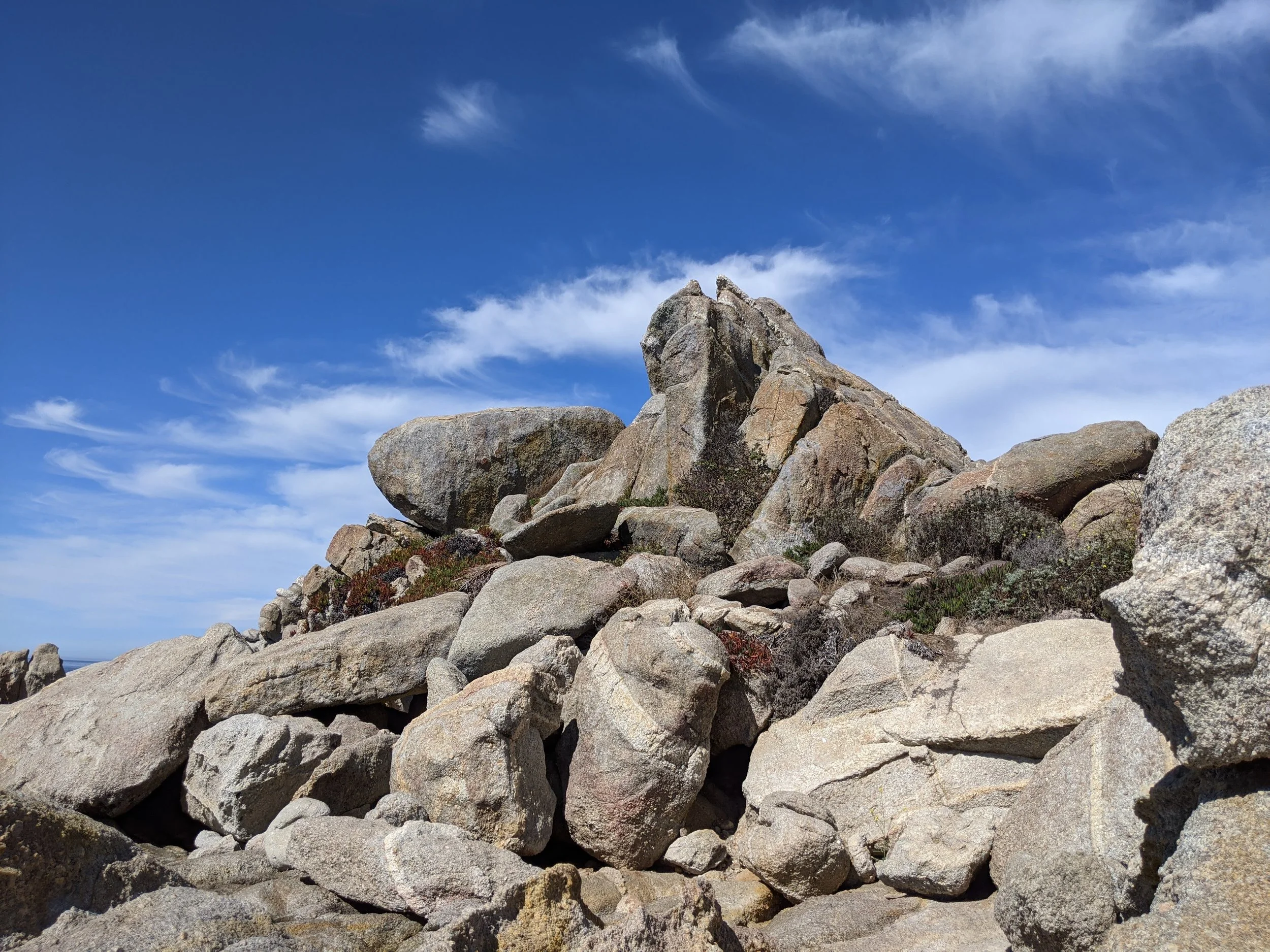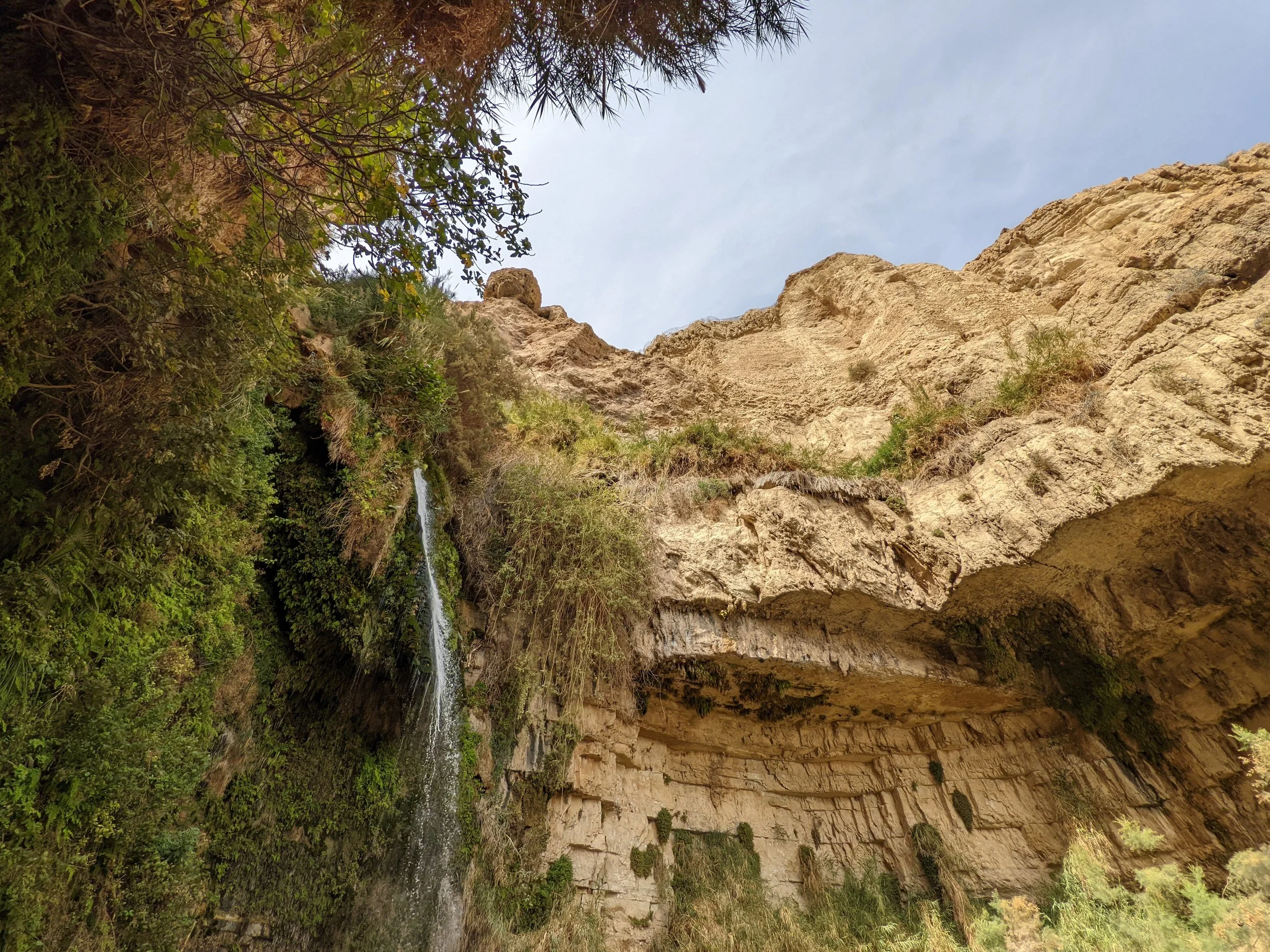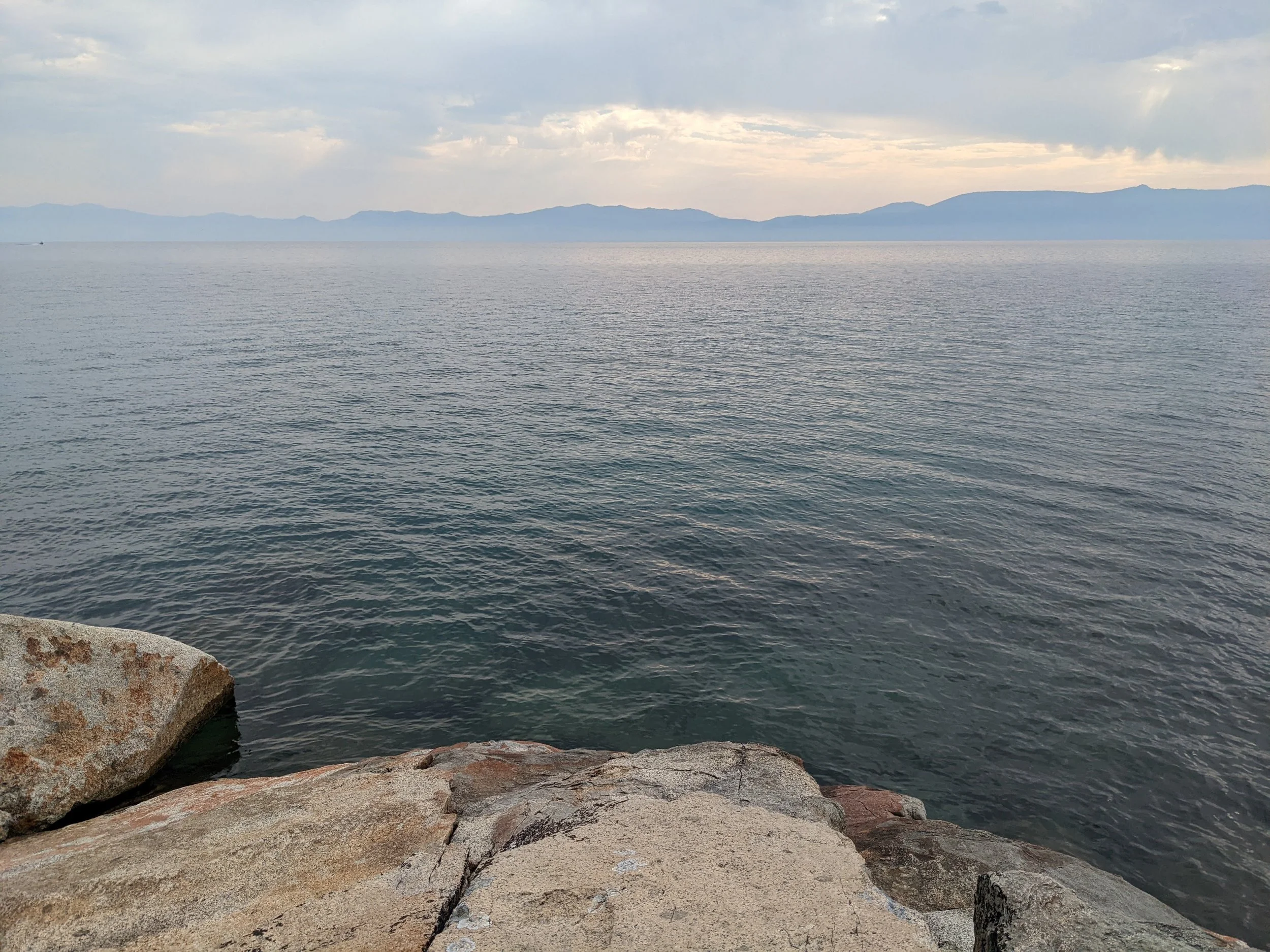The Christ
Imagine, for a moment, Peter. Not the man. Not the apostle. Instead, imagine him as a little boy. One could envision little Peter growing up near Capernaum on the northern end of the Sea of Galilee. The lake was the center of life, and his father taught him the fishing trade.
As his dad pulled fish from the water, counted and cleaned and prepared them for sale, and took them to the market, he likely told young Peter stories. There, buying, selling, and trading—trying to scratch out a living from what nature provided—Peter's family was under the thumb of Rome. But they were Israelites! The blood of Abraham, Isaac, and Jacob flowed through their veins. They had the promises of God.
And Peter's dad, along with all the parents in Israel, would have told their children about the coming Christ, a title which means "the anointed one." After telling Peter of past anointed priests and prophets and kings, he would tell him of someone more anointed than all of them. The anointed one, the Christ, the one who would fulfill all their hopes and dreams.
When he came, he would drive out the Romans and, as a descendent of David, would reestablish the throne of David. David slew Goliath. The Christ would slay Rome. With miraculous power and wisdom from the Spirit, the Christ would reign supreme. The glory of God would come upon the land once again, and this ideal king would establish an ideal kingdom.
Peter, along with every other child in Israel, had heard these stories. God's prophets had stopped speaking centuries earlier, but Jewish literature from the time between the Old and New Testaments is filled with hopes and dreams for the coming of the Christ. And they stirred the region, people like Peter's parents, to hope longingly for the Christ.
When would he come? What would he be like? When would this perfect king arrive?
Who Is He?
As readers of Mark's gospel, we already know. Mark used his first words to introduce us to Jesus. His first words were: "The beginning of the gospel of Jesus Christ, the Son of God" (Mark 1:1).
And the whole book of Mark has been building to this moment, the moment when the disciples will realize Jesus is the Christ. Let's watch it unfold, learning for ourselves who Jesus is and what he came to do.
And Jesus went on with his disciples to the villages of Caesarea Philippi. And on the way he asked his disciples, "Who do people say that I am?" And they told him, "John the Baptist; and others say, Elijah; and others, one of the prophets." (Mark 8:27-28)
An Ideal Location
The setting for this encounter was ideal. Caesarea Philippi had quite a backstory. It was called Caesarea in honor of Rome's Caesar. But since there were other Caesareas, and since it had been re-established by Philip the tetrarch, it was called Caesarea Philippi (27). But it had been rebuilt as a way to honor Caesar.
Before its reestablishment, it had been known as Paneas, in honor of the Greek god. Half man and half goat, Pan was thought to be the guardian of work in the pasture, protecting flocks and nature. Historically, he was worshipped in a cave in this region.
And the cave Pan had been worshipped in was the home of one of the Jordan river's major tributaries. It started in that cave. The Jordan, of course, was an important river in Israel's history, in that God miraculously held back its waters so the people could come into the land many centuries earlier.
So, there, in a region known for its worship of Caesar, its devotion to the Greek gods and way of thinking, and its history with the God of Israel, Jesus asks his questions. First, he asked his disciples, "Who do people say that I am?" (27). There's Caesar. There's the shadow of Greek mythology. There's the God of the Old Testament. But who do people say I am?
Popular Concepts of Jesus
The disciples told him what people were saying (28). John the Baptist was the first response. We've already seen how Herod, the man who killed John, thought this way, believing John had been raised back to life (Mark 6:16). John had preached repentance and the coming of the kingdom. So did Jesus. John had ministered in the wilderness. So did Jesus.
Elijah was the second response. He was the gold standard of Israel's prophets, but he had been gone for over 800 years at this point. He'd never died but was translated directly to heaven. This fact, combined with the last words of the Old Testament, which said Elijah would come again before the great and terrible Day of the Lord, caused some to think Jesus was Elijah (Malachi 4:5-6).
And the third response was that Jesus was one of the prophets (28). Moses had been told that God would one day send a prophet like Moses to Israel (Deuteronomy 18:15, 18). And Jesus' attitude was similar to the prophets. He wept like Jeremiah (Matthew 16:14). He confronted the authorities like Elijah. He rebuked the religious leaders like Ezekiel. And since many believed God would send one last prophet, many wondered if Jesus was that man.
Of course, John the Baptist, Elijah, and all the prophets pointed to Jesus. But no one thought that way at that time. None of the popular concepts of Jesus had anything to do with him being the Christ. They all thought highly of Jesus, but none of them thought he was the long-awaited Messiah, the descendant of David, who would again sit on Israel's throne.
These misperceptions about Jesus are made clearer when we consider that no one in Mark's gospel has thought of Jesus as the Christ yet. The crowds are confused. The disciples are considering his identity. And the religious leaders have made up their minds against Jesus. At this point, only the demons have gotten Jesus right, three times claiming he is the Holy One of God or the Son of God (Mark 1:24, 3:11, 5:7). But everyone else is still in the dark. Still on the outside.
The Importance of Other People's Opinions
But why did Jesus ask the disciples about the opinions of others? Jesus wasn't insecure. He didn't need to be liked. And he had ready access to this information. So why did he want them to state the positions of the crowds?
Perhaps Jesus wanted to nudge them toward declaring their own convictions about him, and this is a good first step in that direction. It is sometimes easier to summarize what other people think than to state your own positions, and this might have been a way to ease them toward confessing him as the Christ.
It also might have been a way for Jesus to get them thinking. They had surely contemplated Jesus' identity. Each episode they'd witnessed brought up the question, Who is this man? But they are now close to making the right decision about Jesus. And this first question might've pushed them over the edge. What do others think? What do I think?
But it also likely had a preparatory effect on these men. There was no shortage of answers and opinions about Jesus. And they needed to believe (and preach) things about Jesus that were unpopular, things that put them in the minority. Listing the opinions of others would help them understand that it would take a backbone to think about Jesus in ways others didn't. They would be part of a small segment of society—the church—and they needed to get used to being different, starting with the way they viewed Jesus.
And he asked them, "But who do you say that I am?" Peter answered him, "You are the Christ." (Mark 8:29)
The Question
Once they stated how others thought about Jesus, he asked them, "But who do you say that I am?" (29). Now that you've told me how everyone thinks about me, now that you've considered their claims and convictions, who do you say I am? What are your convictions? You've been with me all this time. Who am I?
This question is an all-important one. It doesn't matter if you like the morals of Christianity. It doesn't matter if you find the community of the church inviting. It doesn't matter if you think your children need to be around good people in the church. It doesn't matter if you religiously attend church services or read your Bible without fail. If you get the answer to Jesus' question wrong, you do not have something of value. If you fail to answer this question correctly, you fail to have Christianity.
Who is Jesus? Why did he come? Who do you say Jesus is? This is the central question of Mark's book and the central question of the gospel. Who is Jesus?
Peter's Answer
Peter answered (29). For good or bad, he was often a spokesperson for the whole group of disciples. God had made him the leader. His answer: "You are the Christ" (29).
From the cradle, Peter had heard stories of the coming Christ. The descendant of David. The King. The final prophet. The one with the glorious kingdom. The anointed one. The great rescuer.
And, now, Peter is ready. He confesses.
You are the Christ. You are that One for whom we've waited. You are the One who will lift us from our despair and bring us into glory. You are the One who will fulfill God's promises to Abraham, Isaac, and Jacob.
Jeremiah said the days would come when God would raise up for David a righteous Branch who would reign as king, deal wisely, and execute justice and righteousness in the land. In his days, we would all be saved and dwell securely (Jeremiah 23:5-6). You are that Branch!
Isaiah said the Spirit of the Lord would be on that offshoot, that branch of David. He would have wisdom and understanding, counsel and might, knowledge and the fear of God. He will judge the earth with righteousness, deciding with equity for the meek of the earth. Righteousness will be the belt of his waist, and faithfulness the belt of his loins. Great peace will come when he comes, and the earth shall be full of the knowledge of the LORD as the waters cover the sea (Isaiah 11:1-9). You are that glorious person!
I know who you are, Jesus. Others think you're John or Elijah or a prophet, but I know who you are. Nathan the prophet, told David that God would raise up a descendant of his to establish a forever throne with a forever kingdom (2 Samuel 7:1-17). You are that descendant, Jesus! You are the Christ.
Jesus Is.
And Peter was right. Jesus is the offshoot of David. He is the King of glory. He is the One who will usher in everlasting peace for his people. He will set all that is wrong, aright.
Before we move on in the passage, before we consider the method Jesus had to use to become this king, let's rejoice that he is the Christ. Let's celebrate that he is the One who was promised. He is the "sun of righteousness" that "shall rise with healing in its wings" (Malachi 4:2). Elijah foreshadowed him. The prophets foretold of him. And John prepared the way before him. But only Jesus is the Christ. And he has come!
And one day:
"We who are alive, who are left until the coming of the Lord, will not precede those who have fallen asleep. For the Lord himself will descend from heaven with a cry of command, with the voice of an archangel, and with the sound of the trumpet of God. And the dead in Christ will rise first. Then we who are alive, who are left, will be caught up together with them in the clouds to meet the Lord in the air, and so we will always be with the Lord." (1 Thessalonians 4:15–17, ESV)
And we will celebrate that the Christ has come!
***
For the entire Mark series, go here. Thank you.




